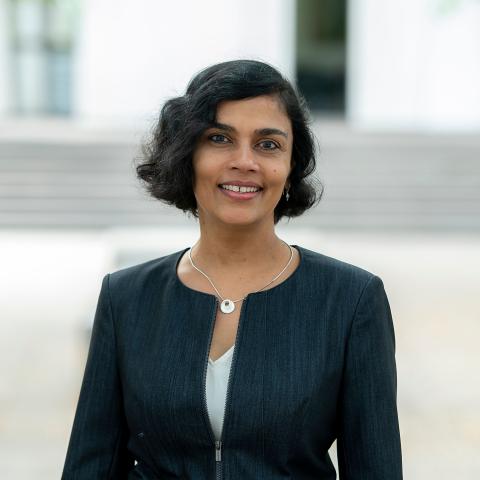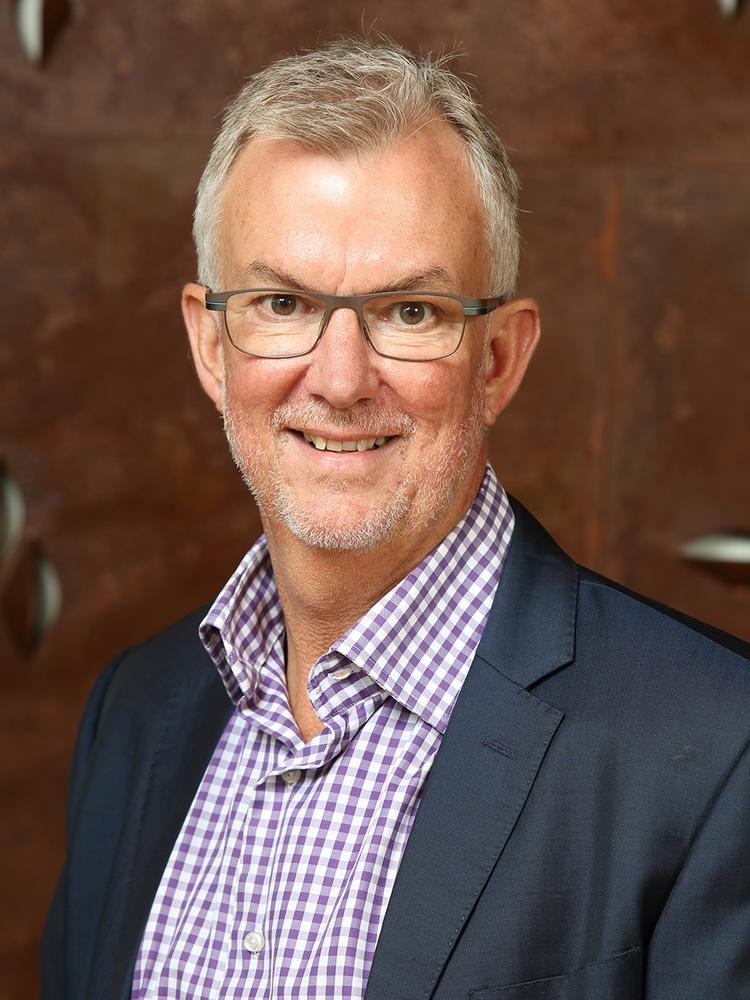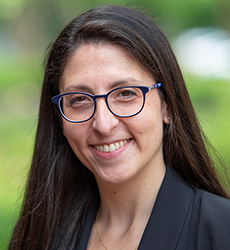
DeCenter Workshop: New Applications for Blockchain in Energy + Environment
Overview: Blockchains offer a new class of global coordination mechanisms with potential to help crises in energy production and climate change. These frontiers will be the focus of a one-day event co-organized by the Princeton Center for the Decentralization of Power Through Blockchain Technology (DeCenter) and the Andlinger Center for Energy and the Environment. Those interested in consideration may direct letters of inquiry to decenter@princeton.edu.
Friend Center, Convocation Room
65 Olden St, Princeton, NJ 08540
Program
Wednesday, April 29
8:45 am
9:15 am
Breakfast and Registration
9:15 am
9:35 am
Welcome and Historical Interlude
This session examines the histories of the electric grid and the insurance industry through the lens of financial and technological innovation. From early experiments in business model design—risk pooling, declining marginal prices—to the modern era of internet-enabled risk intermediation, both electricity and actuarial infrastructures continue to evolve in real time. The discussion will also trace a recurring theme in technological revolutions: the waves of speculation and fraud that often accompany the birth of new financial and communications paradigms.

Mike Maizels, Executive Director, DeCenter, Princeton University

Brendan Greeley, PhD Candidate, Princeton University Department of History

Andrew Houck, Dean, Princeton University School of Engineering and Applied Science
9:35 am
9:50 am
Beyond Power: Hidden Impacts of High-Performance Computing
This session explores the often-overlooked environmental and social externalities of high-performance computing—impacts like groundwater use and contamination, noise and vibration, e-waste, and air pollution from cooling systems and supporting infrastructure. The discussion will highlight how innovation in computing and data infrastructure must grapple with these constraints if it is to be sustainable, equitable, and resilient.

Smita Brunnermeier, Senior Lecturer of Economics and Public and International Affairs, Princeton School of Public and International Affairs
9:50 am
10:10 am
The New Load: Data Centers and the Future of the Grid
This session examines the unprecedented surge in electricity demand driven by large-scale data centers, AI infrastructure, and high-performance computing. After years of stagnant consumption, new loads are arriving just as aging generation assets retire and grid capacity tightens. Using Texas as a case study, the discussion will explore how regional market design, renewable integration, and investment incentives are being tested by this return of real, physical demand—and what it reveals about the future of energy systems in the age of digital abundance.

Ronnie Sircar, Eugene Higgins Professor of Operations Research and Financial Engineering, Princeton University

Keith Collins, Vice President of Commercial Operations, ERCOT
10:10 am
10:30 am
Blockchain and Permissionless Energy Markets
This session introduces the concept of the automated market maker (AMM)—a blockchain-based coordination mechanism that replaces the traditional order book when counterparties are difficult to match. While AMMs today underpin much of decentralized coin trading, their design principles have far broader implications. We will examine how tokenized “parametric outcomes” can enable new forms of risk intermediation, particularly in the energy and insurance sectors. One case study will explore the use of AMMs to provide accessible electricity price-shock hedging to any participant, setting the stage for afternoon sessions that delve into smart contract mechanics and other actuarial applications.

Viraj Nadkarni, PhD Candidate, Princeton University

Matheus V. X. Ferreira, Assistant Professor of Computer Science, University of Virginia
10:30 am
10:45 am
Coffee Break
10:45 am
11:05 am
Decentralized Infrastructure & Renewable Power: Theory into Practice
This session examines DePIN—decentralized physical infrastructure networks that use blockchain to coordinate real-world assets without centralized control. Focusing on solar energy, the discussion introduces a “first-principles” framework that models pooled renewable generation through the lens of modern portfolio theory. The presenter will share early findings and moderate a conversation with a research lead from Glow, an Ethereum-based solar network recently backed by major investors to scale its capacity from 5 MW toward 600 MW. Together they’ll consider how token incentives and decentralized coordination can transform renewable deployment and risk management.

Kyle Onghai, PhD Candidate, Princeton University Department of Operations Research and Financial Engineering
Vik Kalghatgi, Chief Scientist, Glow International
11:05 am
11:30 am
Bootstrapping Clean Molecule Markets
This session explores how blockchain coordination can help establish early markets for clean molecules—from near-term industrial inputs like low-carbon ethylene to emerging fuels such as green hydrogen and synthetic marine fuel. The discussion will examine how on-chain tools, including pre-commitment contracts and tokenized offtake agreements, can align large buyers and sellers before full market maturity. By enabling transparent, verifiable demand signals, these mechanisms may help overcome the “chicken-and-egg” problem that often stalls the scaling of new energy commodities.

Chris Greig, Senior Research Scientist, Andlinger Center for Energy and the Environment

Mike Kriak, CEO, Consensys Mesh
11:30 am
12:15 pm
Collective Ideation Group Session
This 45-minute working session invites all participants—policy leaders, technologists, and researchers—to synthesize and stress-test ideas emerging from the day’s discussions. In small groups, we’ll explore key questions: How sound are the proposed models and mechanisms? What real-world go-to-market pathways could make them viable? Which policy levers or institutional partnerships might help them scale responsibly? The aim is to move from concept to actionable insight, drawing on the group’s diverse expertise to map the most promising next steps for blockchain-enabled energy and climate solutions.
12:15 pm
1:00 pm
Lunch
1:00 pm
1:20 pm
Insurance at a Crossroads
This session examines the deepening protection gap in global insurance markets—driven by private-sector retreat in advanced economies and the vast scale of under-insurance across the developing world. Discussion will focus on structural barriers to risk coverage and explore how new forms of financial coordination might extend protection to climate-vulnerable populations.
1:20 pm
1:40 pm
AMMs and Peer to Peer Weather Disaster Insurance
This presentation dives into the potential of using blockchain to provide insurance products—such as monsoon protection for small-holding farmers—in places where traditional coverage remains scarce amid escalating climate risk. The session will explore how automated market makers could interface with actuarial and meteorological systems to dynamically price and distribute risk, translating complex forecasts into accessible, on-chain instruments.

Gordon Grant, Principal, ChiSquared Technologies
1:40 pm
2:00 pm
Distributed Sensing and Verifiability for Decentralized Payouts
This session links decentralized insurance to the physical infrastructure that enables it. Ranvir Rana, CEO of Witness Chain, will discuss how networks of cryptographically verifiable sensors can supply trusted weather or location data to trigger on-chain payouts automatically. By extending “trustless” finance into the realm of physical observation, these systems reduce reliance on centralized oracles and point toward the future of data-driven DePIN networks.

Ranvir Rana, Co-Founder, Kaleidoscope Blockchain
2:00 pm
2:30 pm
Collective Ideation Exercise
A 45-minute group conversation designed to distill key insights from the day’s sessions, similar to the morning session. Participants will pressure-test the math, identify go-to-market strategies, and consider policy levers for advancing blockchain-enabled energy and insurance solutions.
2:30 pm
3:00 pm
Coffee Break
3:00 pm
3:15 pm
Policy Implications of Remote Sensing
This session examines how new generations of satellites, ground sensors, and data analytics can transform energy and environmental governance. It considers how advances in remote sensing, machine learning, and networking technologies could enable continuous, high-resolution monitoring of air, water, and land systems—ushering in more transparent, evidence-based policymaking. The conversation explores the institutional and equity challenges involved in building such systems, from data standards and public access to the political will required to scale them.

John Quigley, Senior Fellow, Kleinman Center for Energy Policy, University of Pennsylvania
3:15 pm
3:45 pm
DePIN + Data Markets, Part I: Weather and Location in Action
A discussion with founders and researchers working with decentralized systems that gather and monetize real-world weather and location data. The session explores how these networks sustain themselves across commercial, scientific, and educational contexts—and what their business models reveal about the viability of decentralized infrastructure for trusted environmental data streams.

Frederik Simons, Professor of Geosciences, Princeton University

Olivia Walbert, Postdoctoral Research Associate, Global Geophysics, Princeton University
3:45 pm
4:15 pm
DePIN + Data Markets, Part II: Frontier Sensor Commercialization
A forward-looking conversation on how decentralized infrastructure models could accelerate the rollout of next-generation sensor networks—from precision agriculture and environmental monitoring to deep-ocean and atmospheric observation. This session examines how token incentives, open data markets, and collaborative governance might help bridge the long-standing divide between research-grade instrumentation and commercially scalable systems, highlighting both the technical challenges and the emerging opportunities for sustainable sensor economies.

Mark Zondlo, Professor of Civil and Environmental Engineering, Princeton University

Dylan Bane, Sr. Enterprise Research Analyst, Messari
4:15 pm
5:15 pm
Reception
Organizers

Vivian Fuhrman

Madelyn LaBuda

